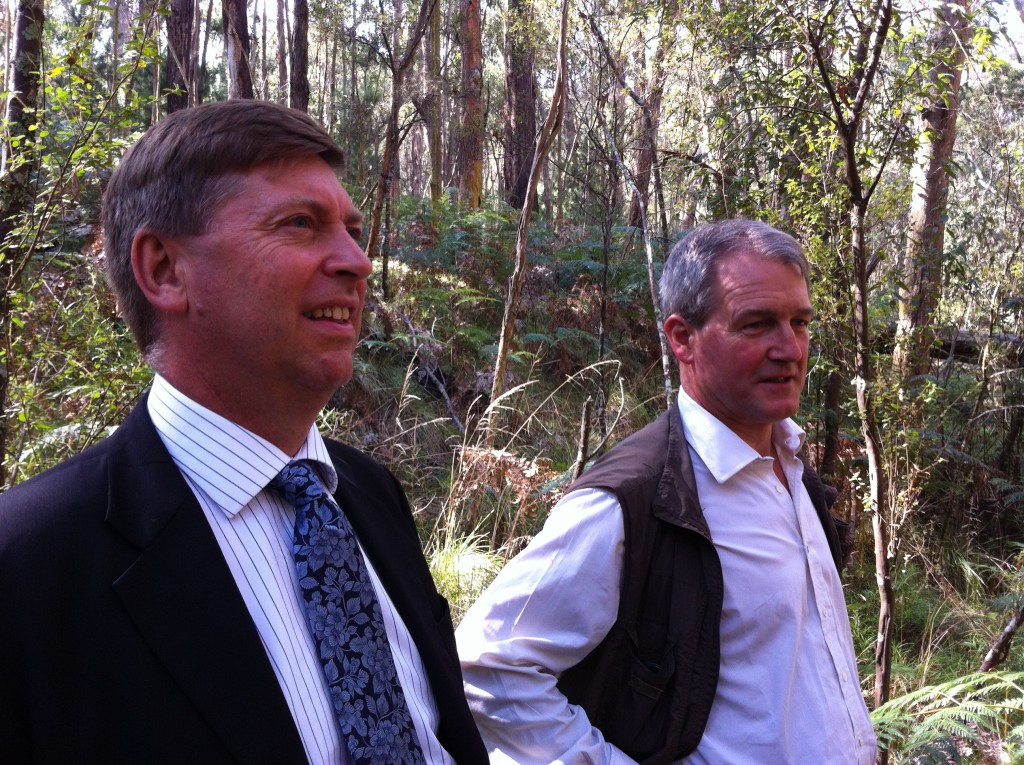Standing in his moleskins in a grove of gum trees in rural Victoria, British Secretary of State for Environment, Food and Rural Affairs Owen Paterson looked every inch the countryman. Me, in my dark suit, not so much.
He was here with scientific and policy officials to look at several aspects of Australian agriculture. The gum trees were part of a “Biodiversity offset” project where developers had been required to conserve a pristine reserve, in compensation for a development project which destroyed nature in another part of the state. It’s an interesting concept which may hold lessons for Britain, where the government is seeking to reduce the bureaucratic constraints planning regulations impose on the economy, whilst fully maintaining environmental protection.Mr Paterson also looked at Australia’s vaunted animal and plant quarantine procedures at ports and airports. In a globalised world, biosecurity is ever more important, to present damaging diseases and pests from moving rapidly from country to country. He visited farms and agricultural science laboratories. There is much scope for greater UK/Australia collaboration in these fields.
He also received a fascinating briefing on Australian water management, including the Murray Darling Basin Plan. This is a massive scheme, and covers a catchment twice the size of France which irrigates half of Australian agriculture. It has not been without controversy, between individual users and between the different states through which it flows. But the key has been monetising irrigation rights, so that they can be traded to enable the market to allocate water to the most productive uses.
In addition to farmers, politicians and officials, Mr Paterson also had a chance to meet business representatives and discuss international agricultural trade. Not surprisingly, Australian exports to Britain in this sector, £457m (of which £308m is wine), are twice UK exports to Australia, though these are not insignificant at £228m (of which £80m is scotch whisky). The composition of those trade flow ensures that we can certainly raise a glass to each other.

